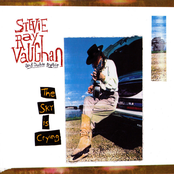Earlier in the year, reader and friend of the blog David Evans suggested I run an article about the truce at Messines over Christmas in 1914. This outbreak of humanity in the midst of one of the bloodiest wars the world had ever witnessed, captured the popular imagination for years. The idea of opposing sides downing weapons and joining in a game of football in no man’s land is enchanting and solid, and has featured in many forms of pop culture – from rock music videos to films and books.
David, as readers will know, has a particular interest in the wars in Europe, and has visited the site where the truce is believed to have started. He also pointed me in the direction of a wonderful article about the truce.
David wrote:
Hello Bob
This quiet memorial, with Messines church in the distance, tells an amazing story. On Christmas Day in 1914 an unofficial truce broke out along this part of the front lines… And elsewhere, too.
The full story unfolded many years later following the end of World War One as relatives read the little red diaries that had been kept by soldiers, and returned with their possessions when they died in action.
So many participants in this truce, on both sides, were subsequently sent on ‘suicide’ missions by their commanding officers.
kind regards
David
David has extensively visited, and taken some interesting pictures of the area which I include. The timeline featured here was written by military historian Chris Baker and appears on his site ‘The Long, Long Trail’, which is a remarkable resource for those interested in the First World War. I considered re-writing this article into a different piece, but it’s just so wonderfully concise and informative that there was no point.
As you can see, what appears to have happened isn’t quite the spontaneous kickabout we’ve come to believe occurred, but on the other hand, it’s a very touching demonstration of human spirit in the most hell-like conditions one could possibly imagine.
This is a story of the indefatigability of the human warmth and spirit in the face of relentless attrition. It’s wonderful, sad, and emotional. It’s the 98th anniversary this year – as you go today, maybe having fun and enjoying the festivities, think of those men, sharing hymns and the festive spirit amongst the trenches.
Please do check out the work of Chris Baker.
5 December 1914
II Corps HQ [General Sir Horace Smith-Dorrien] issued an instruction to commanders of all Divisions: “It is during this period that the greatest danger to the morale of troops exists. Experience of this and of every other war proves undoubtedly that troops in trenches in close proximity to the enemy slide very easily, if permitted to do so, into a “live and let live” theory of life…officers and men sink into a military lethargy from which it is difficult to arouse them when the moment for great sacrifices again arises…the attitude of our troops can be readily understood and to a certain extent commands sympathy…such an attitude is however most dangerous for it discourages initiative in commanders and destroys the offensive spirit in all ranks…the Corps Commander therefore directs Divisional Commanders to impress on subordinate commanders the absolute necessity of encouraging offensive spirit… friendly intercourse with the enemy, unofficial armistices, however tempting and amusing they may be, are absolutely prohibited”
The early weeks of December 1914
Tremendous volumes of mail and gifts for the troops were sent from homes in the United Kingdom and Germany. King George V sent a Christmas card to every soldier, sailor and nurse; the Princess Mary fund despatched a gift box to every serving soldier.
14 December 1914
An attack of 8th Brigade at Wytschaete on 14 December 1914 fails with heavy casualties.
18 December 1914
An attack by 22nd Brigade [2nd Queen’s and 2nd Royal Warwickshire] on the Well Farm position at La Boutillerie fails with heavy casualties. A further effort [by 20th Brigade; 2nd Scots Guards and 2nd Border] later in the day also fails.
19 December 1914
An attack by 11th Brigade [1st Somerset Light Infantry, 1st Hampshire and 1st Rifle Brigade] on the “German Birdcage” east of Ploegsteert Wood fails with heavy casualties, many of which are caused by British heavy artillery firing short of target.
20 December 1914
Local truce on the front of 22nd Brigade; Germans begin by taking in British wounded from no man’s land. There is some contact: according to Lt G. Heinekey of 2nd Queen’s, it lasted all morning. Lt Henry Bower, 1st South Staffordshire and at least one soldier of the 2nd Queen’s were killed by rifle fire from neighbouring units while assisting with the wounded. A similar activity took place on the front of 20th Brigade.
23 December 1914
A German soldier, Karl Aldag, reports that both sides had been heard singing hymns in the trenches. German troops coming into the lines bring Christmas trees. Some men begin to place them on the parapets of the fire trenches. Local truce on the front of 23rd Brigade.
24 December 1914, Christmas Eve
The weather changes to a hard frost. This makes trench conditions a little more bearable. 98 British soldiers die on this day, many are victims of sniper fire. A German aeroplane drops a bomb on Dover: the first air raid in British history. During the afternoon and early evening, British infantry are astonished to see many Christmas trees with candles and paper lanterns, on enemy parapets. There is much singing of carols, hymns and popular songs, and a gradual exchange of communication and even meetings in some areas. Many of these meetings are to arrange collection of bodies. In other places, firing continues. Battalion officers are uncertain how to react; in general they maintain precautions. The night brings a clear, still air with a hard frost.
25 December 1914, Christmas Day

Men of 20th Brigade bury their dead of the attack of 18 December, alongside German soldiers engaged in the same activity. Christmas Day, 1914.
Units behind the lines attend church services and have in most cases arranged Christmas dinners which are taken in barns and shattered buildings. In the front lines, the fraternisation of Christmas Eve is continued throughout the day; not all units know about it, and it is not universal but is widespread over at least half of the British front. Many bodies that have been lying out in no man’s land are buried, some in joint burials. Many men record the strange and wonderful events; may men exchange tokens or addresses with German soldiers, many of whom speak English. 81 British soldiers die on this day; a few die in areas that are otherwise peaceful and with fraternisation going on, victims of alert snipers. In other areas, there is considerable activity: 2nd Grenadier Guards suffer losses in a day of heavy fighting. As night fell, things grew quiet as men fell back to their trenches to take whatever Christmas meal that had been provided for them.
26 December 1914, Boxing Day

British and German troops meet in no man’s land. Boxing Day, 1914. Photographed by 2nd Lt Cyril Drummand, RFA.
Some snow. In some areas, the friendly spirit was resumed. Gradually however, officers and men on both sides began to resume normal trench caution. The atmosphere in general remained relaxed as Brigade and Battalion officers took a pragmatic view of events. The chance was taken to carry out work that would otherwise have been hazardous. By now, however, news of the truce was reaching higher commands. General Sir Horace Smith-Dorrien requested particulars of those units and officers who took part, with a view to disciplinary action. In the event, no action was taken against any unit or officer. 62 British soldiers die on this day.
27-31 December 1914
The weather turns wet again, with rain, sleet and storms. There were instances of men disappearing in the flooded trenches. Yet in some areas the friendly mood remained for several days and there was almost no firing, although open fraternisation gradually died away. On New Years Eve, there was a certain amount of singing and exchange of messages, but no truce as such.
Myths and legends about the Christmas truce
The Pope calls for peace at Christmas
In early December 1914 Pope Benedict XV began an initiative, requesting that the nations “cease the clang of arms while Christendom celebrates the Feast of the World’s Redemption”. Germany said it would do so as long as the other nations did; they did not, and the Pope’s effort faltered. It is doubtful whether it had any meaningful impact on what eventually happened.
Football in no man’s land
Mention appears in the war diary of the 1/6th Cheshire Regiment. A common theme whenever football is mentioned is a score of 3-2 to the Germans.




 RSS - Posts
RSS - Posts









Hi Bob
many thanks for publishing this article. Readers who have Google Earth can see the actual field, by Prowse Point cemetery and Muddy Corner cemetery. The co-ordinates for the site are;-
50 44 46 92 N, 2 54 12 17 E.
At one point during this bloody conflict a certain British officer, Winson Churchill, was stationed at Ploegsteert,just to the south , whilst, just a mile or so away to the north , a young German soldier was one of the conscripts in the opposing lines, at Messines.. His name was Adlof Hitler.
kind regards
David
Hello Brownhills Bob. Thanks for your kind remarks. Glad you found the website useful. Cheers and keep up the good work, Chris Baker (grew up in Lichfield, so not too far away from you).
Pingback: Unearthed | BrownhillsBob's Brownhills Blog
Pingback: A beautiful game | BrownhillsBob's Brownhills Blog
Pingback: World War One Centenary events in Walsall this Monday | BrownhillsBob's Brownhills Blog
Pingback: Live and Let Live | BrownhillsBob's Brownhills Blog
Pingback: Explosive stuff | BrownhillsBob's Brownhills Blog